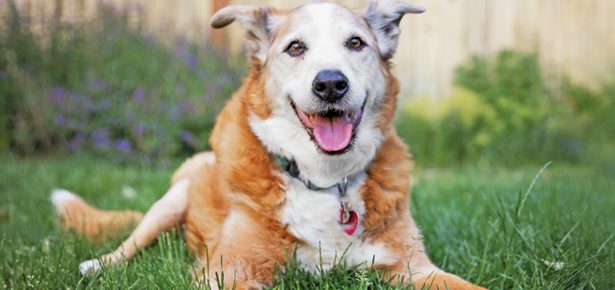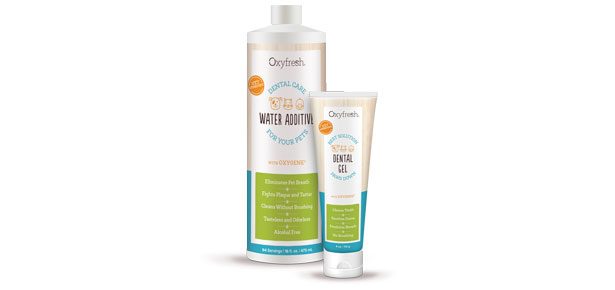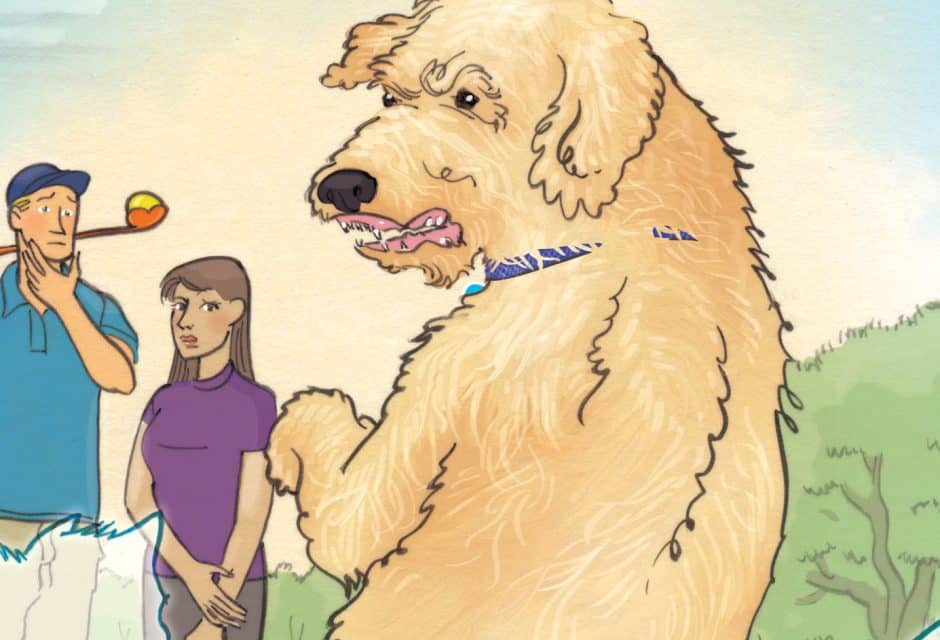

Can Dogs Eat Cheese? Yes, But it Depends on Your Dog.
Cheese for dogs? What kinds, and how much? Find out below!
The short answer is that cheese alone is non-toxic to dogs, but it depends on your dog’s individual sensitivities whether you should feed it to them. Dogs can eat cheese, but there are a few things to keep in mind before you start feeding your pup big chunks of cheddar.
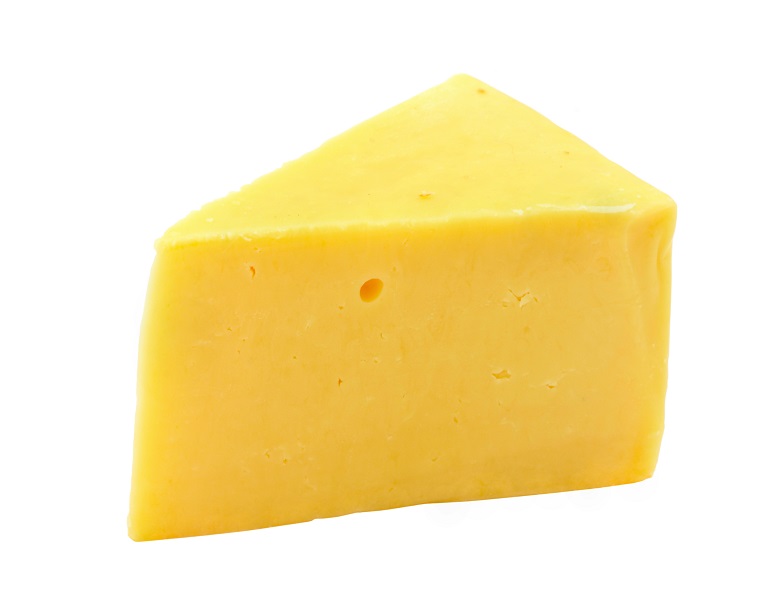
Photo by kmitu/bigstock.com
Concerns about Cheese for Dogs
- Cheese can be high in fat: If your dog is overweight or needing to cut down on a few pounds, you should definitely lay off the cheese treats. Another concern is if your dog has a history of pancreatitis since high-fat foods are associated with this condition.
- Cheese can be high in salt: Certain cheeses (especially hard aged cheeses) contain a very high salt content, which can be dangerous and lead to sodium poisoning if dogs eat too much. Most dogs will be able to drink enough fresh water to dilute the salt they consume, but it’s good to be cautious. Common symptoms of sodium poisoning are extreme thirst, lack of energy, vomiting, watery diarrhea, and loss of appetite. If your dog has these symptoms, bring them to the vet right away. Another associated risk with high-salt foods are for dogs with kidney problems.
- Cheese could have added ingredients that are toxic to dogs: Some common additions to cheese are garlic, onions, or chives, which are all toxic to canines. Always check the ingredients first!
- Your dog might be lactose intolerant: If you’re not sure whether your dog can digest cheese well, try feeding them a very small piece of cheese first. Keep a close eye on your dog for the next 24 hours for any signs of stomach upset, or negative bathroom changes. If you know your dog is lactose intolerant, then you should skip cheese altogether or try a very low-lactose option such as goat cheese.
Which Types of Cheese Can Dogs Eat?
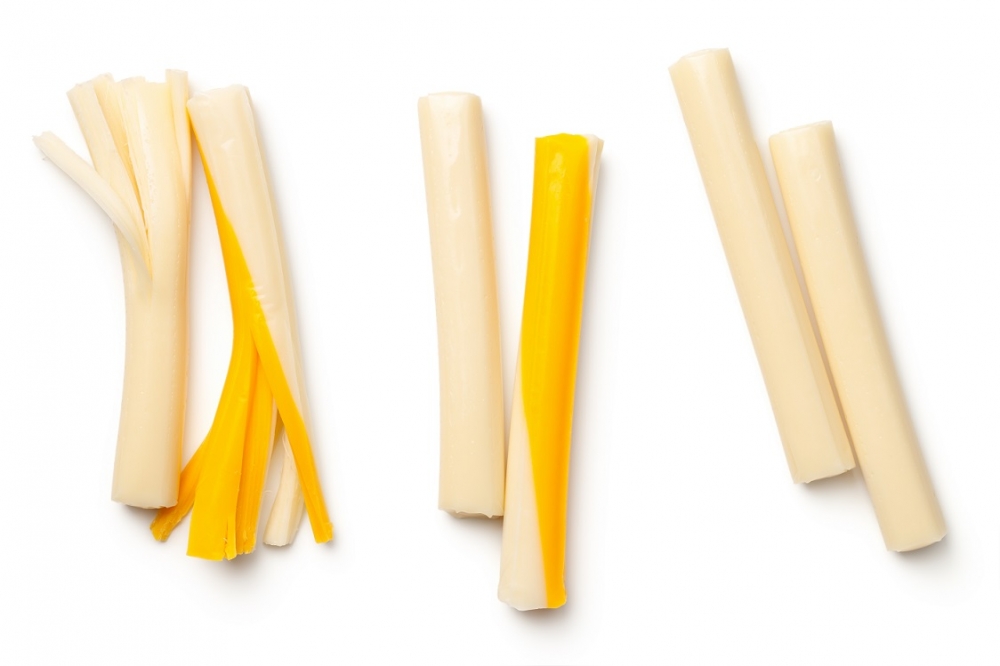
Photo by ThreeArt/Bigstock
All of the basic cheeses that are commonly found in the house are safe for a dog to eat in moderation. Mozzarella or most other soft cheeses have a high-fat content, so if you’d like to share a slice with your pooch now and then, try to get low-fat cheese instead.
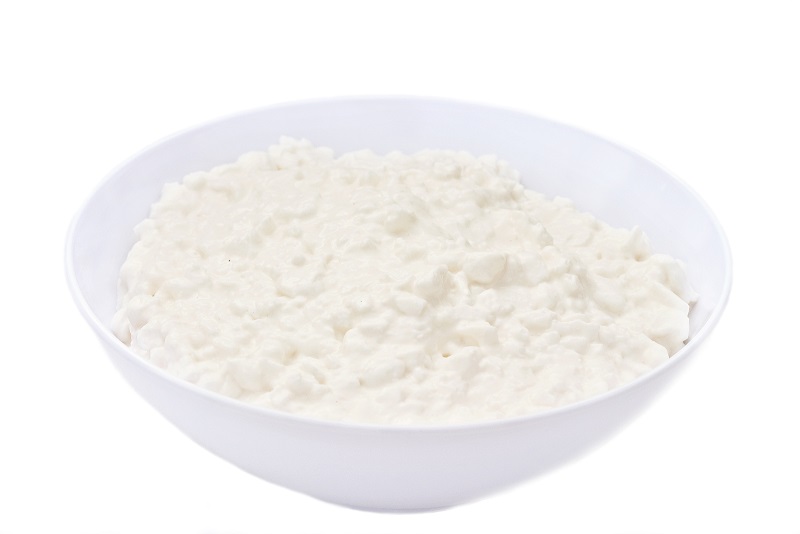
Photo by StephanieFrey/Bigstock
As long as your dog is eating cottage cheese that’s low in salt, it can be an excellent, occasional addition to your dog’s diet. Cottage cheese has a good level of protein, calcium, and vitamins (as long as it’s high quality). Probiotics are also found in cottage cheese, which can be helpful for calming a dog’s upset stomach. Cottage cheese also comes in a low-fat variety for dogs who are concerned with weight.
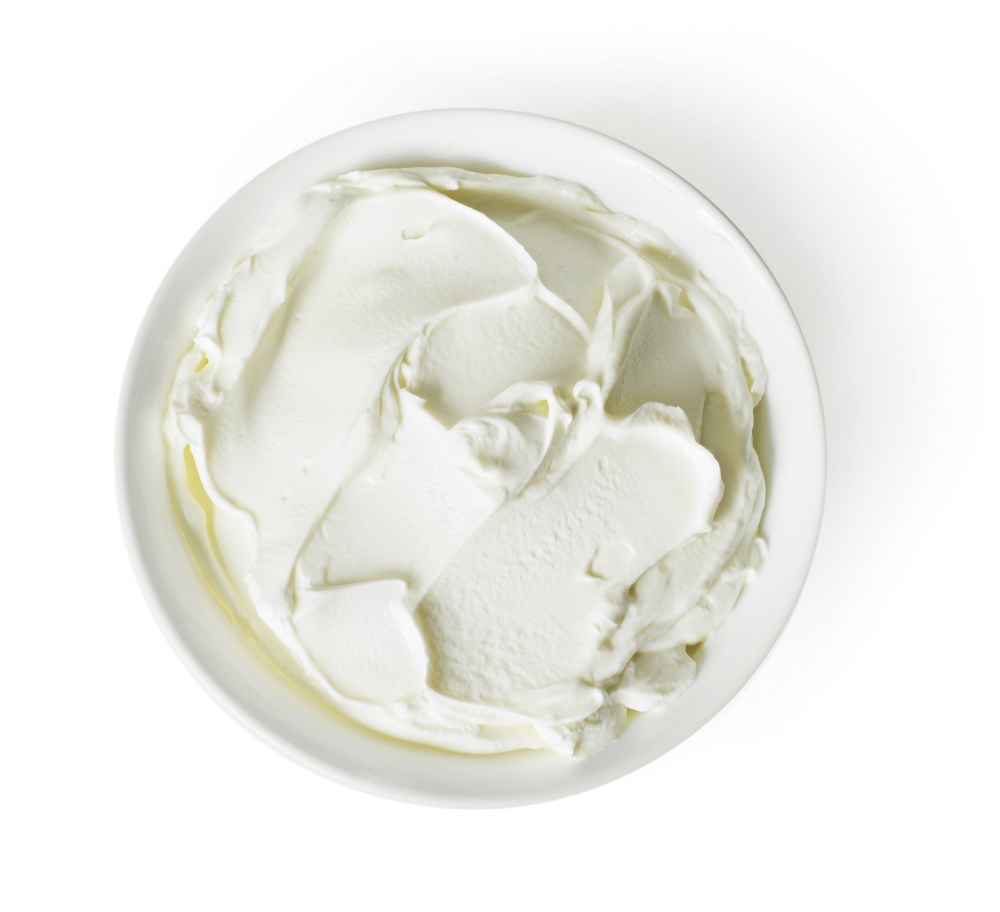
Photo by Eivaisla/bigstock.com
You can feed your dog plain cream cheese, but only in small and infrequent amounts. Cream cheese is rich, fatty, and high in calories so should be fed with care, and ideally should be of the low-fat variety. Stick to plain cream cheese instead of flavored (yes, we’re talking about that herb and garlic cream cheese) since they can have added ingredients such as garlic or onions, which are toxic to dogs.
Which Types of Cheese are Bad for Dogs?
Other than the cautions above about cheese overall (salt, fat and added ingredients) the main cheese to avoid completely is blue cheese.
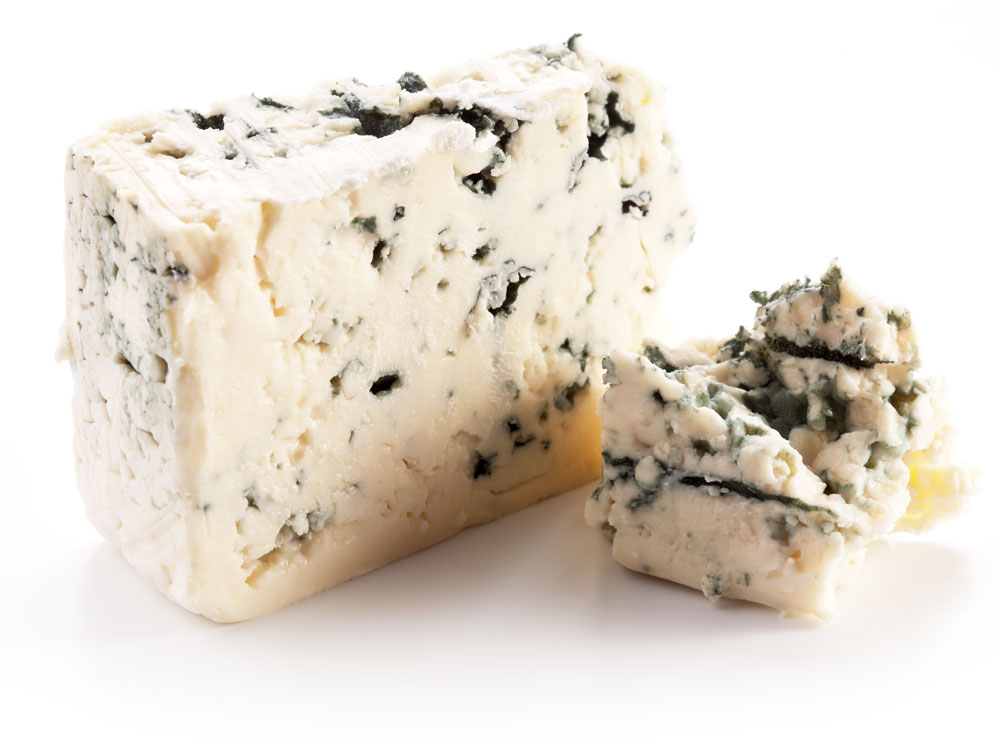
Photo by Volff/bigstock.com
When blue cheese is ripening, a mycotoxin called Roquefortine C is produced by the mold within the cheese. This substance can be very toxic to dogs in and should be avoided altogether. While avoiding blue cheese is the best solution, if your dog does accidentally ingest a very small amount of blue cheese they’ll probably be fine.
If consumed, keep a close eye on your dog for the next few hours and call the vet immediately if you notice any vomiting, seizures, or diarrhea.
Final Tips for Feeding Your Dog Cheese:
- Moderation is key. Feed cheese to your dog in small amounts, and not frequently.
- Start small if your dog has never eaten lactose to make sure he’s not sensitive to it.
- Treat your dog with low salt, low fat cheeses.
- Avoid blue cheese or similar ‘moldy’ cheeses.
- Ask your vet beforehand if cheese is safe for your dog.
You can even share your favorite comfort food with your dog like macaroni and cheese but always practice moderation. These kinds of treats should make up a very small percentage of your dogs diet. Learn about 10 more people foods you can feed your dog!
There you go, dogs can eat cheese. Give your dog a cheesy treat and let us know if he/she likes it in the comments!
Join the newsletter and never miss out on dog content again!
"*" indicates required fields
By clicking the arrow, you agree to our web Terms of Use and Privacy & Cookie Policy. Easy unsubscribe links are provided in every email.


